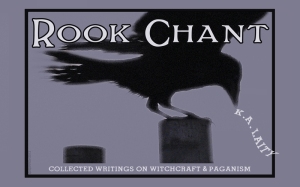One of the key foundations of modern (and ancient) Paganism is also one of the most contentious. We find it very hard to talk about, it seems, and yet it's fairly key to many people's personal practice. When I've talked about it in the past, it almost seems like I'm breaking a taboo, with the words themselves being 'dirty' or embarrassing. And yet, learning from my passionate and heartfelt Heathen friends, that embarrassment is itself disrespectful, dishonourable and, ultimately, rather foolish.
Who are your Gods and Goddesses? What does Deity mean to you, and how does it influence and affect your Paganism? From the Platonic 'ultimate Male/Female' images (tallying with 'All Gods/Goddesses are One') to the pantheistic, international eclectic transference of pretty much any deity with any other no matter where you yourself live, talking about Deity is a tricky business. Especially because ultimately, nobody can really tell you you're wrong. Or right. Except, perhaps, those Gods themselves.

The Judgement of Paris (Classical)
-
 I enjoyed reading what you wrote. I have been working with the deities since a child. I am nearing 50 now and performed my first
I enjoyed reading what you wrote. I have been working with the deities since a child. I am nearing 50 now and performed my first -
 Cat: Like Elani, you are articulating one of the major cutting edges of contemporary Paganism -- what *do* we believe? I, for one,
Cat: Like Elani, you are articulating one of the major cutting edges of contemporary Paganism -- what *do* we believe? I, for one, -
 Wonderful post. I think about the Gods in general, and my patron/matron Gods, all the time. But too often I forget to stop, liste
Wonderful post. I think about the Gods in general, and my patron/matron Gods, all the time. But too often I forget to stop, liste







 The charms of
The charms of 










